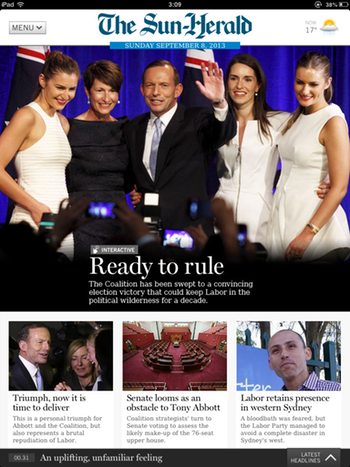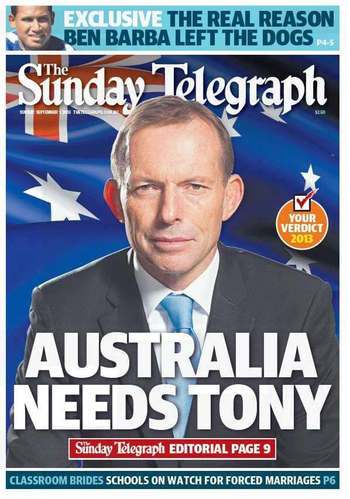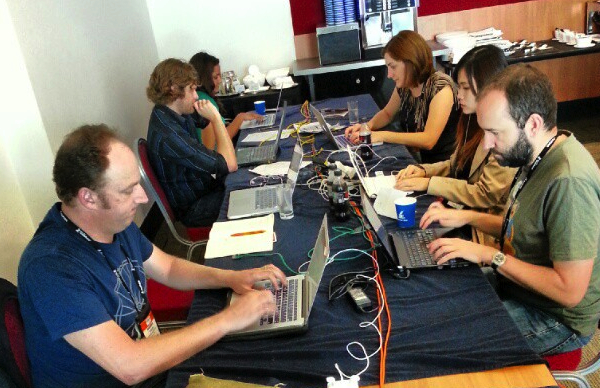[Update 24 February 2014, 0820 AEDT: Before commenting, political tribalists might want to read my further comment. Then again, if you don’t, you’ll reveal yourselves for the fools that you are. So on second thoughts, comment away!]
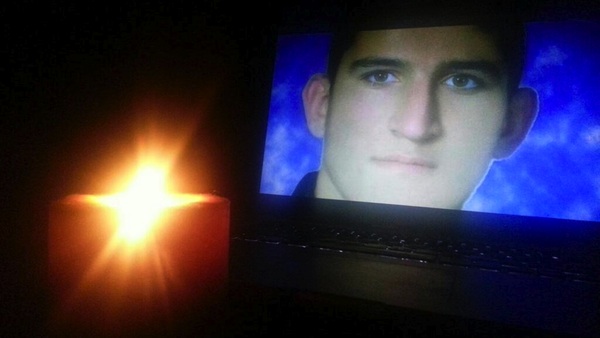 A man — no, a youth — fled danger and sought safety with us. But we put him in a concentration camp, and our hired goons stood back while he was bashed to death. According to our Prime Minister, a man who professes to follow the teachings of that Jesus bloke, that’s OK. After all, we don’t want to be “wimps”.
A man — no, a youth — fled danger and sought safety with us. But we put him in a concentration camp, and our hired goons stood back while he was bashed to death. According to our Prime Minister, a man who professes to follow the teachings of that Jesus bloke, that’s OK. After all, we don’t want to be “wimps”.
Well, Mr Abbott, I’m a wimp. A weak nerd. Yet I’ve stepped in to stop people being bashed, despite the risk.
I’ve been the one who, alone and late at night on an otherwise deserted street, walked up to the young couple, the shouting man with his hand gripped on the terrified woman’s throat, and said, “Is everything OK, miss?”
I’ve been the one who’s stood, hands empty and with open palms, and looked straight into the eyes of the crazed guy with the knife and talked him down.
I did those things on those occasions, and other things on other occasions, not because I’m brave — because I’m not, I was shit-scared. Not because I’m tough — because I’m not. Not because I needed to prove anything to myself, because — yeah right, like I could prove to anyone that I were brave or tough. I don’t race a bicycle, or swim in the surf, or strip to my Speedos in public. I’m middle-aged, overweight, short-sighted and I’ve got flat feet.
But I did those things then, and I mention them now, because that’s what people do.
At least if they have any character. Any spine.
The problem here, Mr Abbott, is that you don’t seem to ever admit that you’ve ever done anything wrong, let alone take responsibility for it. Fine. You’re a Christian, or so you say. You know when you’ll be called to account, right?
What’s particularly loathesome, however, is your hypocrisy. Last July you said you’d take responsibility for deaths at sea as a result of the Coalition’s policy of turning back the boats. “Obviously I will take responsibility for what happens on my watch,” you said.
But only when they’re at sea? Once they’re on land that’s fine, eh Abbott? Then we can all bash the living shit out of them and let them die in a pool of their own blood and that’s acceptable? Is that what you’re saying?
Even if this were remotely acceptable behaviour in a civilised society — which of course it’s not — you’ve got it arse-about, Abbott. If you kill ’em at sea, then the bodies sink and the blood washes away. Think it through!
Speaking of arse, do you remember when you told Tony Windsor that you’d do anything except sell your arse to become PM? It seems that includes letting 23-year-old lads get bashed to death. And you worry about “wimps”. What a pathetic, cowardly, desperate grub you are. Craving power, but unable to take any responsibility once you’ve got it.
You’ve even said that you can’t be trusted at your word unless it’s in writing.
The game of politics is riddled with hypocrites, of course, but you and your current batch of visionless seat-warmers in Canberra really does take the biscuit. Every single muppet that warms a green seat on your side of the House lets a turd like you be their “leader”? How noble of them!
Well in my part of the world, Dear Coalition, the only things that follow a turd are a good long piss and the paper I’ve wiped my arse with.
Reza Berati died on your watch, Anthony John Abbott. “Responsibility”, you said? Why don’t you finally become a man and take some? And may Reza Berati be the last.
Before commenting, political tribalists might want to read my further comment below.
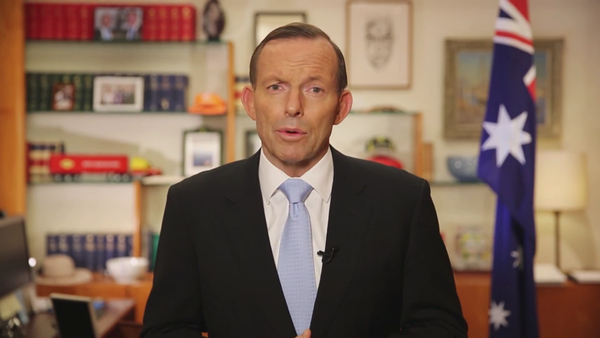 “At the going down of the sun, and in the morning, we are open for business,” tweeted @bernieb last night, adding, “As I stand here on Anzac Cove, I’m reminded of just how terrible a place Australia was before I became Prime Minister.” An utterly crass scenario, no?
“At the going down of the sun, and in the morning, we are open for business,” tweeted @bernieb last night, adding, “As I stand here on Anzac Cove, I’m reminded of just how terrible a place Australia was before I became Prime Minister.” An utterly crass scenario, no?
 A man — no, a youth — fled danger and sought safety with us. But we put him in a concentration camp, and our hired goons stood back while he was bashed to death. According to our Prime Minister, a man who professes to follow the teachings of that Jesus bloke, that’s OK. After all,
A man — no, a youth — fled danger and sought safety with us. But we put him in a concentration camp, and our hired goons stood back while he was bashed to death. According to our Prime Minister, a man who professes to follow the teachings of that Jesus bloke, that’s OK. After all, 